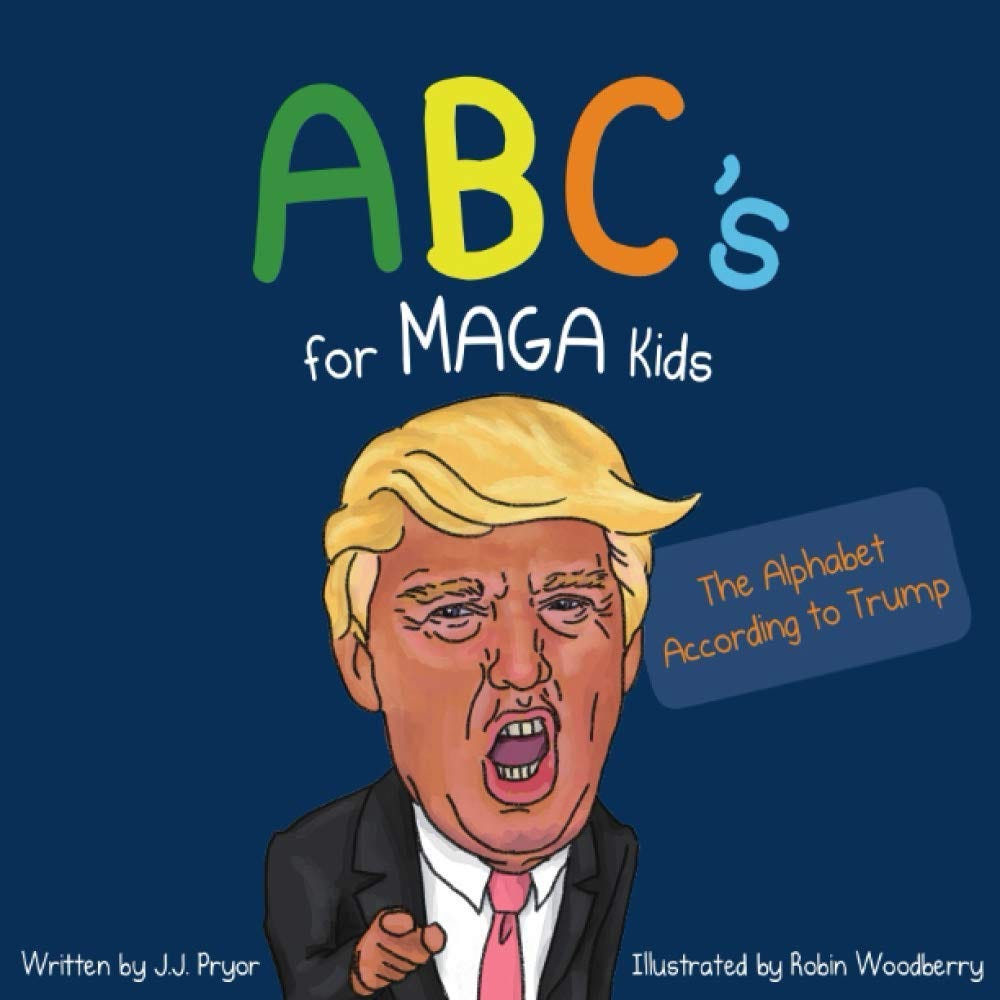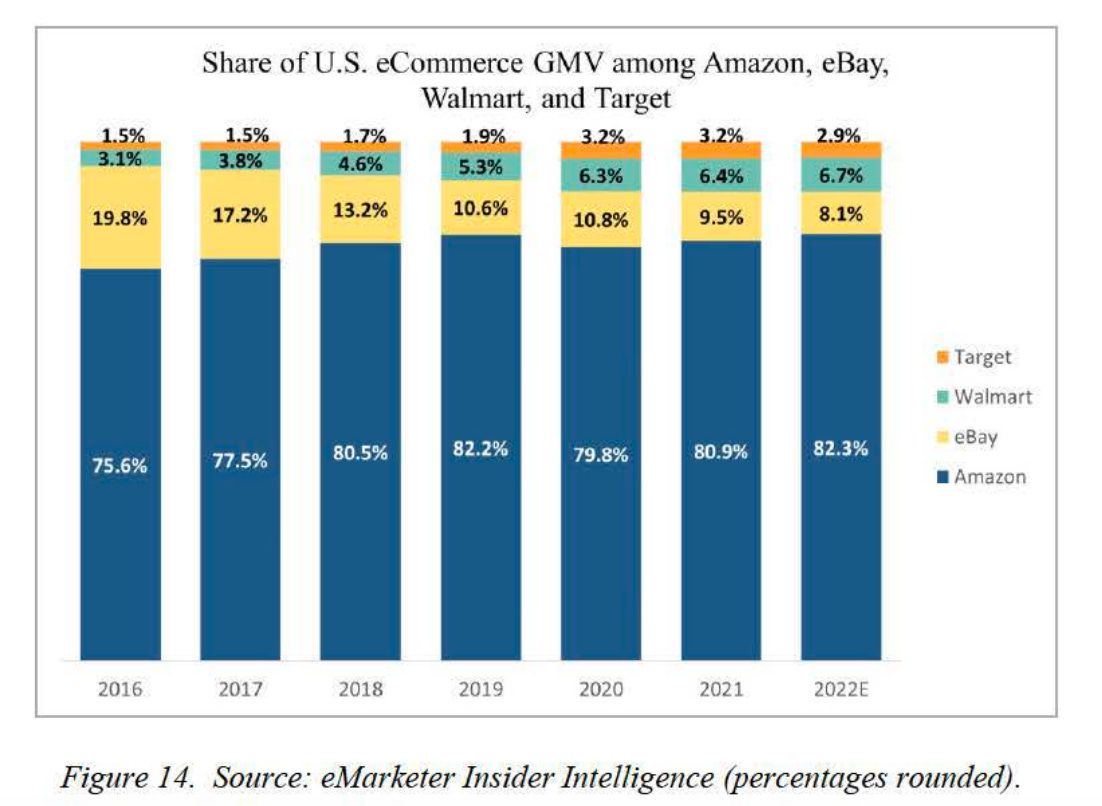I Just Sold My 500th Book. If I Was Allowed to Advertise It I’d Be Rich
Or at least far better off than I am today
“Advertising is the price you pay for having an unremarkable product or service.”—Jeff Bezos
Today, amazingly, marks the 500th copy of my book being sold.
I should be popping open a bottle of champagne and celebrating the milestone. And trust me, there's a part of me that is over the moon with joy.
But, there's another part that wonders "What if?"
You see, the black box of Amazon’s algorithm decided my book was too "political" for advertising on Amazon. Granted, it was 2020 and the US was about to experience one of its most debated elections; sensitivities were heightened.
But the thing is—my book wasn't some weighty political manifesto—it was a children's satire picture book!
If Gulliver could travel to Lilliput, why couldn't I jest about politics in child-like caricaturesque landscapes?
The sting grew sharper when I'd find actual political books comfortably nestling in those lucrative sponsored ad slots on Amazon.
Perhaps the algorithm found my satire a tad too spicy?
Nevertheless, I plucked away organically.
Articles, social media posts, emails to every Tom, Dick, and Harry who had ever expressed even the slightest interest in my musings.
Even some of you reading this very newsletter 3 years ago (there were dozens of you!) might remember my zealous crusade. That strategy bore fruit. I saw a surge of about 150 sales in the first month, and I was elated.
Strangers from Finland to Florida had ordered a physical copy of my silly book and possibly had it on their coffee table, framed on the wall, or even in the trash—as surely Reddit user bustermust, who might need to look up what the word satire means—would’ve done:
And here we are three years later.
500 sales!
Pretty damn spanky, if I do say so myself.
But I had to know, was 500 copies of a book anything to write home about, in non-book format?
Books, It’s Not What’s For Dinner Anymore
According to the Amazon entry for my book, it currently ranks:
#223,807 in Books
#422 in Political Fiction Books
#1,325 in Fiction Satire
#1,492 in Humorous Fiction
Hmm, seems not too shabby for a little old unadvertised piece of child propaganda.
And certainly, if I had published it way back in 2005 when only 282,500 new titles were published and self-published in the US, that might’ve been pretty impressive.
But that’s a far cry from the estimated 4 million published and self-published books hitting our virtual and diminishingly corporeal shelves in 2022 alone.
But hey, at least the total book revenue for book sales must be increasing after all these years, right?
Right?!
Right.
Well, technically.
In 2022, American book industry revenues reached around $25.7 billion.
In 2000, it was…$25.3 billion.
And, of course, adjusted for that nasty little thing called the inflation effect, the industry’s revenue declined 38% in real value.
Ouch.
So, if the competition is crazy high now and the money isn’t really increasing, how do 500 book sales stack up against the average author?
I’m so glad you asked, dear reader!
I converted a nice set of statistics Kristen McLean—the lead industry analyst from NPD BookScan—shared in this comment section about the previous 52 weeks of combined book sales from the top 10 publishers ending in August, 2022:
All I have to say about that is—I had more than 12 copies, woo!
But really, it’s a rather eye-opening chart if you look closely. Less than 10% of books sold more than 5,000 copies that year.
5,000 copies of a published book.
And if you were to get a measly $2 per book as I did, even when copies sell for $15 (guess where all the extra money goes!), for an author to make a decent 6 figures from a book, they’d assumably have to sell in the 50,000+ range.
And for that, only 483 books, assumably by different authors, made the cut.
483 books out of ~4 million.
Holy sweet Jesus, we authors are playing the lottery!
Yet, to listen to my inner pesterer for a moment, I still have to ask myself, could I have sold more?
The What If Game
What if I could've advertised my book like my more fortunate politically connected contemporaries? My professional writer friend with over 20 books out there has always told me you have to advertise your books to make any money.
I always figured if I was given grand permission by the Algorithm Gods to place a bet with their service I might’ve gotten maybe 20% or 40% more sales.
I certainly would’ve appreciated it.
Turns out, I was likely far, far off.
According to a massive antitrust lawsuit filed by the FTC against Amazon recently, trying to sell your product or book on their platform without forking over a nice chunk of your revenue in ads is like asking a billionaire to give a shit about society.
The lawsuit states:
"Now, advertised products on Amazon are 46 times more likely to be clicked on when compared with products that are not advertised."
46 times!
4500% more!
That means for every organic search on Amazon where someone clicked on my book title, 46 more people would’ve clicked if I had forked over money for paid spots.
My writer friend is right.
For context, if my humble book sold 500 humble copies, and with some optimistic back-of-the-napkin math, that potentially would’ve been more than 23,000 book sales!
Now, I’ve made just over $1,000 in revenue from these sales, and you can be damned certain I’d be far happier if that number were closer to $46,000.
But I didn’t pay to play.
For whatever reason, Mr. Algorithm wouldn’t let me.
Modern Ponzis Require Modern Schemes
It’s no wonder “successful Amazon sellers have to spend anywhere between 10 percent and 20 percent of their sales on Amazon ads.” And to top that proof off, one of Amazon’s biggest gains in revenue of the last few years has been—you guessed it—in advertising revenues.
“Amazon's advertising business has been its fastest-growing division for the past two quarters. Revenue for that division jumped 22% year over year in the second quarter, to $10.7 billion.
Further, ad sales managed to top Amazon's subscription revenue, which includes the $14.99 monthly payments from Prime members.”
As the story goes, somewhere around the mid-2010s, Amazon started to prioritize advertising over organic search. A few years later, the numbers speak for themselves and the FTC has finally taken notice.
It’s a bit of a vicious cycle.
Online retailers started seeing their sales drop lower and lower, and when they increased their Amazon advertising budget, lo and behold, their sales trajectory reversed!
But when advertising fees start taking out a bigger chunk of your revenue, you have to raise the price of your product if you still want to make any profit.
Just look at the data—a clearly monopolistic online market share of 82.3% between Amazon, eBay, Walmart, and Target in 2022.
Now, extrapolate that to the greater economy at large knowing many of Amazon’s sellable products have increased their prices purely due to the algorithmic manipulation of higher advertising costs.
Cough, cough, inflation, anyone?
If ol’ Jeffy Bezelnut is to be believed and “advertising is the price you pay for having an unremarkable product or service,” then the entirety of Amazon’s catalog must be full of absolute shite Chinese knockoffs.
Wait…maybe he was onto something.
But Wait, There's More!
That’s right! After all the lessons, roller coaster rides, and fun with algorithms, I've finally mustered the caffeinated courage to finish another book.
Despite drowning in more procrastination than Elon Musk at a ‘Save the Earth’ seminar, I’ve penned down another work of art.
Why did it take 3 years?
Just my usual inner turmoil about the title. "Should I Sell My Soul to Jeff?" is still a work in progress.
But as they say, “If you can’t beat ‘em, join ‘em.”
Yup, for this next one, I’ll be selling a part of my soul and flirting with the dark side of advertising.
I can almost hear some of you purists yelling, “Sell out!” And to that I say two things:
Correct.
And…
Better to have sold out than to have never sold at all!
If a sprinkle of soul-selling and ad dollars ensures that my snark and satire are read far and wide, ish, then, dear reader, pour me a glass of whatever it is spiritless billionaires drink.
The blood of children?
Anyway, before I sign off and head off to negotiate as Faust (I wonder if the devil prefers PayPal or Venmo?), here’s a simple promise to you: no matter how the book gets to you—through an ad, an organic search, or even a shady deal with an ancient demon—it's going to be filled with the same wit, charm, and perhaps a pinch more snark.
Or, it might suck and I’ll waste a few hundred on advertising so Amazon’s shareholders can continue leeching off the lifeblood of our society.
Either way, I’ll have another children’s satire picture book coming your way soon!
Written by J.J. Pryor
👋Click the heart thingy? The algorithm loves it. I love it more.👋










Great article with some really insightful data. What you've failed to address though are the six billion titles that sad folk without a creative bone in their body will now produce using AI. It may be time to trade in the pen.
This gives me insights on how to market and sell my books. Thanks for the great info!